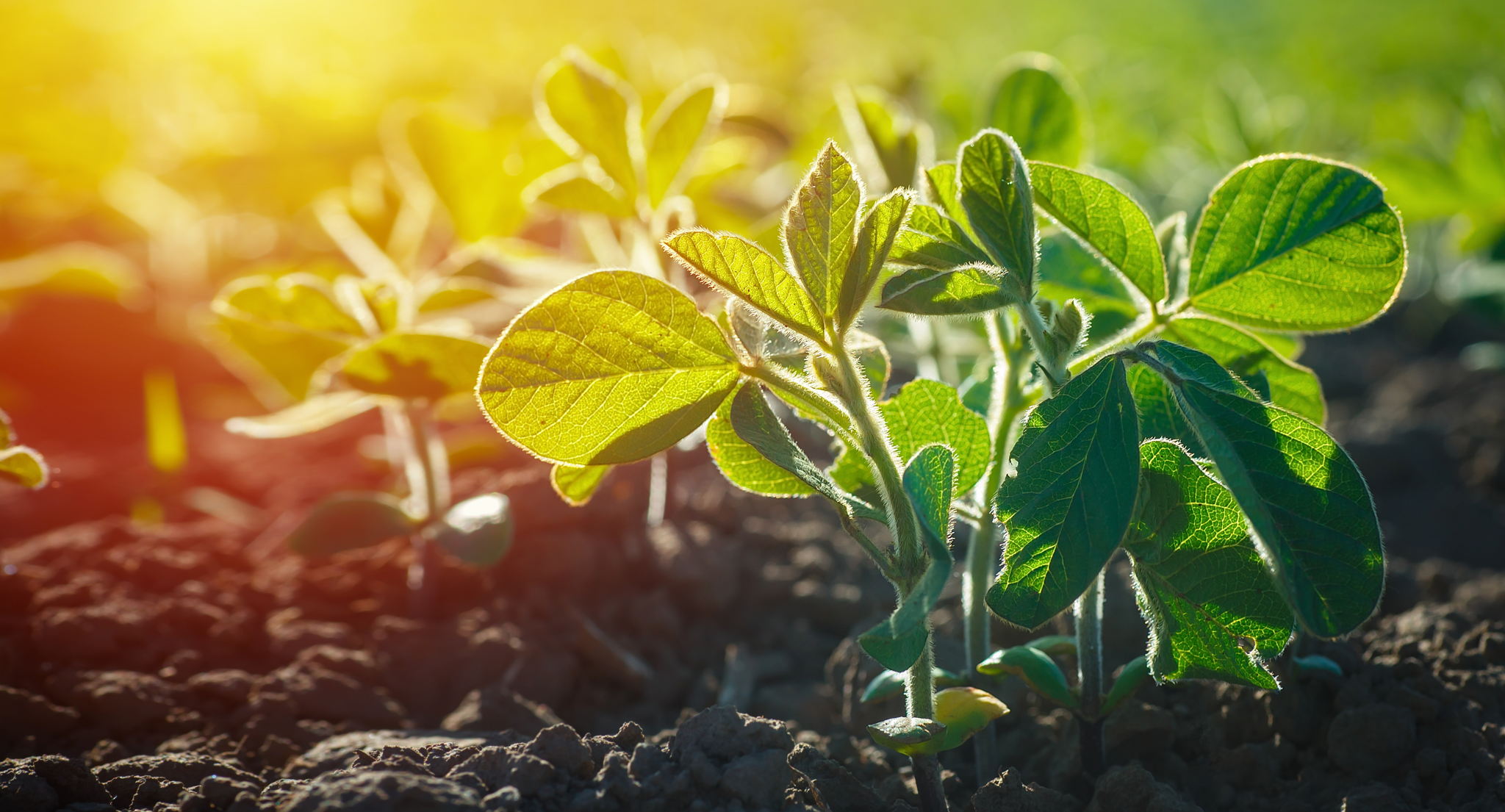Harnessing the power of soybeans
A journey of innovation in sustainable agriculture
Soybeans are not only a vital source of plant-derived protein for food and feed but they also offer numerous benefits beyond their nutritional value. Soy cultivation contributes to soil improvement and reduces nitrogen pollution via nitrogen fixation by associated bacteria, which makes it a sustainable crop, especially in the face of a changing climate and shifting dietary patterns. However, growing soybeans in Belgium is challenging due to the lack of adaptation to local soil and environmental conditions. Perhaps, though, bacteria can come to the rescue…
Citizen science in 1,000 gardens
In response to the challenges of local soy cultivation, an ambitious project between VIB, UGent, KUleuven, and ILVO called 'Soy in Flanders' was launched, funded by the VIB Grand Challenges Program. At the start of this project, the ‘Soy in 1,000 Gardens’ citizen science initiative was initiated to engage citizens in soybean cultivation, with the final goal to develop tailor-made seed coatings with nitrogen-fixing bacteria adapted to Belgian soil. Not only will this project provide a local, sustainable source of plant proteins for human food, but it will also provide an alternative crop for farmers in the face of the changing climate conditions.
In early 2021, the project successfully recruited close to 1,200 citizens in Flanders, who planted soybean seeds in their gardens. Over six months, these citizen scientists closely monitored the growth and yield parameters of the soy plants and reported their observations on a digital platform. The project's objective was to capture indigenous nitrogen-fixing bacteria from the soil by locally growing soybeans. During the summer, participants returned selected plants to the laboratory for further analysis.
A total of 4436 plants were returned to the lab by 907 citizens, with 918 plants exhibiting root nodules potentially containing Rhizobium bacteria with nitrogen-fixing capacity. These bacteria were carefully isolated, identified, and put to the test to determine their ability to fix nitrogen and help soy grow in Flanders with acceptable yield. Through rigorous experimentation by the VIB labs of Sofie Goormachtig, Steven Maere (VIB-UGent Center for Plant Systems Biology) and Jan Michiels (VIB-KULeuven Center for Microbiology), the UGent team of Anne Willems, and the ILVO teams of Joke Pannecoucque and Isabel Roldán-Ruiz, the best-performing bacteria in lab and field trials will be selected for further development.

Field trials, before and after
The isolated nitrogen-fixing bacteria that demonstrate outstanding performance will be harnessed to create seed coatings. These coatings will enable farmers to grow soybeans with improved yields in Flanders. By incorporating these adapted bacteria into the seed coating, soybean cultivation can become more sustainable and economically viable for local farmers. This breakthrough will contribute to reducing import reliance and positively impact the agricultural landscape in the region.
Protealis: Pioneering sustainable agriculture
To turn this potential into a reality, VIB founded the spinoff Protealis, which aims to develop high-yield, high-protein soybean varieties using plant growth-promoting bacteria. In February 2022, less than a year after its launch, Protealis already registered two new high-yield soy varieties. By harnessing the potential of nitrogen-fixing bacteria Protealis is reshaping the agricultural landscape, reducing import dependence, and promoting sustainable farming practices.
.jpg)
Embracing the power of soybeans
At the core of these endeavors lies a balance between idealism, curiosity, and societal impact. Scientists like Sofie Goormachtig and Jan Michiels emphasize the importance of asking fundamental questions and maintaining an idealistic perspective, while innovative startups like Protealis translate these research findings into practical applications. The synergy between basic research and entrepreneurship enables scientists to bridge the gap between theory and real-world solutions, fostering a culture of innovation and progress.
Of course, science does not succeed in isolation and progress does not happen without involving people. An important part of the Soy in 1,000 Gardens is the regular interaction between scientists, agricultural professionals, entrepreneurs, and the general public. On May 14, 2022, the VIB Grand Challenges team organized a first event for the citizen scientists who participated. During the event, info booths, experiments, and lab tours provide a transparent look at the inner workings of the science. A reverse science café encouraged a dialogue between the participants and the experts. A similar event, aimed specifically at agricultural professionals took place on January 13, 2023. And more such events are planned.

As the collaboration between VIB, ILVO, and other stakeholders continues to thrive, the impact of soybean research expands. From improved yields and reduced environmental footprint to the development of innovative products for farmers, the journey of soybean innovation emphasizes the significance of interdisciplinary collaboration, public engagement, and the relentless pursuit of knowledge. By embracing the power of soybeans, we can pave the way for a more sustainable future in agriculture and ensure food security for generations to come.


Gunnar De Winter







